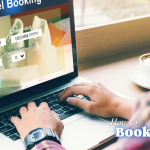Going on a solo backpacking journey can be an exhilarating and transformative experience. It offers unparalleled freedom, the thrill of the unknown, and the chance to meet new people and immerse yourself in diverse cultures. However, it also presents unique challenges in terms of safety, budgeting, and maximizing the value of your experience. These backpacking tips for solo travelers aim to equip you with practical tips and insights to help you navigate your adventure with confidence.
The 5 Backpacking Tips for Solo Travelers
Planning Your Journey
When choosing your destination, consider the following factors:
- Safety: Research about the safety of potential destinations. Look up travel advisories and read about other travelers’ experiences in online forums and blogs.
- Cost: Consider your budget and the cost of living in potential destinations. Some countries are more affordable to travel to than others. Look up the costs of accommodation, food, transportation, and activities in different countries.
- Language: If you’re not comfortable with language barriers, you might want to choose a destination where you speak the language or where English is widely spoken.
- Cultural Experiences: Think about what kind of cultural experiences you want to have. Do you want to explore ancient ruins, experience vibrant festivals, try exotic foods, or learn a new language?
Creating an Itinerary is a must
- Duration of Stay: Decide how long you want to stay in each place. Consider travel times between destinations and how much there is to see and do in each place.
- Places to Visit: Research about the must-see places in your chosen destination. Look up tourist attractions, natural wonders, historical sites, and local markets.
- Activities to Do: Think about what activities you enjoy. Do you like hiking, diving, exploring cities, visiting museums, trying new foods, or attending local events? Make a list of activities you want to do during your trip.
Preparing for Your Journey
Effective budgeting is crucial for a successful backpacking trip.
- Accommodation: Different types of accommodation offer different experiences and costs:
-
- Hostels: These are usually the cheapest option and offer a great opportunity to meet other travelers. Look for hostels with good reviews and secure lockers for your belongings.
- Guesthouses: These can offer a more local experience. They’re usually reasonably priced and provide a more homey environment.
- Budget Hotels: These offer more privacy than hostels and guesthouses. They’re a bit more expensive, but they can be worth the extra cost for the added comfort and amenities.
- Booking in advance: This can sometimes save you money, especially during peak travel seasons. However, keep some flexibility in your plans for those spontaneous travel moments.
- Food: Eating is a significant part of the travel experience and can impact your budget:
- Local Food: Trying local food at street stalls or markets not only gives you a taste of the culture but is also usually cheaper than eating at touristy restaurants.
- Self-Catering: If you have access to cooking facilities, consider buying groceries and cooking your meals. This can significantly reduce your food expenses.
- Transportation: Getting around your destination can add up in costs:
- Public Transportation: Buses, trams, metro systems, and local trains are usually much cheaper than taxis or rental cars. They also give you a more local experience.
- Walking or Biking: Whenever possible, consider walking or renting a bike. It’s free, environmentally friendly, and a great way to explore your surroundings.
- Activities: Your travel activities can make or break your budget:
- Prioritize: You probably can’t see and do everything, so prioritize based on your interests. Spend on what you think will enhance your travel experience the most.
- Free Activities: Many cities offer free attractions, such as parks, museums, and landmarks. Do some research before your trip to find these free experiences.
Packing light is key when backpacking.
- Backpack: Choose a backpack that is comfortable to wear for long periods. Look for one with padded shoulder straps and a hip belt to distribute weight evenly. The backpack should be durable to withstand the rigors of travel and lightweight to not add unnecessary weight. The capacity should be enough to hold all your belongings but not so large that it encourages overpacking.
- Clothing: Pack clothing that is versatile and can be layered to adapt to changing weather conditions. Lightweight clothing that can be easily washed and dried is ideal. Don’t forget a waterproof jacket for unexpected rain showers and good walking shoes that are comfortable for long distances.
- Travel Documents: Keep your passport, ID, and travel insurance details in a safe and accessible place. Also, have digital copies stored in a secure online location and physical copies kept separately from the originals. This is a precaution in case the originals are lost or stolen.
- Money: Carry a small amount of local currency for emergencies and places that don’t accept cards. A travel-friendly debit or credit card is great for regular expenses. Make sure to inform your bank of your travel plans to avoid any potential blocks on your card.
- First Aid Kit: Include basic first aid supplies such as band-aids, antiseptic wipes, tweezers, medical tape, and gauze pads. If you have any necessary prescription medication, make sure to bring enough for the duration of your trip, along with a copy of the prescription.
- Hygiene Items: Travel-sized toiletries such as shampoo, soap, and toothpaste can save space in your backpack. Hand sanitizer is useful for times when you don’t have access to clean water. A quick-dry towel is lightweight and can be used at the beach, for impromptu picnics, or even as a blanket.
- Tech Gadgets: A smartphone can serve multiple purposes, such as communication, navigation, and entertainment. Don’t forget your charger and a universal adapter for different power outlets. A portable power bank can be a lifesaver when outlets are scarce or when you’re on the move.
Safety First
Staying safe is paramount when traveling alone.
- Accommodation: Choose safe and reputable accommodations. Read reviews before booking and opt for accommodations in safe neighborhoods.
- Local Customs: Respect the local customs and laws of the places you visit. This can help you avoid unwanted attention and potential legal issues.
- Emergency Contacts: Keep a list of emergency contacts, including the local police, ambulance, and your country’s embassy or consulate.
- Stay Connected: Regularly update someone back home about your whereabouts and plans. This can be a lifeline in case of emergencies.
- Trust Your Instincts: If something doesn’t feel right, it probably isn’t. Trust your instincts and remove yourself from potentially unsafe situations.
Health and insurance are important to maintain good health, and having proper insurance is crucial.
- Travel Insurance: Invest in comprehensive travel insurance that covers medical expenses, trip cancellation, lost luggage, and other potential costs.
- Vaccinations: Make sure you’re up-to-date with routine vaccines, and get any additional vaccines recommended for the countries you’re visiting.
- Maintain Good Health: Eat a balanced diet, stay hydrated, get enough sleep, and exercise regularly. Also, carry a basic first aid kit and any necessary prescription medication.
- Avoid Risky Activities: Be cautious when participating in adventurous activities. Always use reputable operators and ensure you have the right safety gear.
Trivago will do the searching. You do the saving.
Trivago, a leading global hotel search platform, simplifies the process of finding the perfect accommodation for travelers worldwide. With its user-friendly interface and comprehensive database of hotels, Trivago enables users to compare prices from various booking sites, ensuring they secure the best deal for their desired stay. Visit trivago.ca for a seamless booking experience, helping travelers make informed decisions and embark on memorable journeys with confidence.
Making the Most of Your Experience
Immersing yourself in the local culture is one of the most rewarding aspects of traveling.
- Learn the Language: Even a few basic phrases can go a long way in connecting with locals and showing respect for their culture.
- Try Local Cuisine: Food is a huge part of any culture. Don’t be afraid to try new dishes and flavors.
- Respect Local Customs and Etiquette: Research about local customs, traditions, and etiquette. Be respectful and try to follow them as much as possible.
- Participate in Local Activities: Attend local festivals, markets, and events. This can give you a deeper understanding of the local culture.
Meeting New People
Meeting new people can enrich your travel experience.
- Stay in Social Accommodations: Hostels, guesthouses, and shared accommodations are great places to meet fellow travelers.
- Join Group Activities: Participate in group tours, classes, or activities. These are not only fun but also great opportunities to meet people.
- Be Open and approachable. Be open to conversations and new experiences. A simple smile or hello can lead to meaningful connections.
Traveling solo doesn’t mean you have to be lonely.
- Enjoy Your Freedom: Traveling solo means you have complete freedom to do what you want. Enjoy this freedom and make the most of it.
- Self-Reflection: Use this time alone for self-reflection. It can lead to personal growth and self-discovery.
- Stay Connected: Stay connected with your loved ones back home. Share your experiences and feelings with them.
Reflecting on Your Journey
Keeping a record of your experiences is a great way to remember your journey and the lessons you’ve learned.
- Preserving Memories: A travel journal or blog can help you remember the places you’ve visited, the people you’ve met, and the experiences you’ve had.
- Sharing Your Experiences: Sharing your experiences through a blog or social media can inspire others to embark on their solo backpacking journey.
- Learning from Your Experiences: Documenting your experiences can help you reflect on what you’ve learned during your journey. It can also help you plan better for your future trips.
Reflecting on your journey after you return home can be a rewarding experience.
- Reflect on Your Experiences: Think about the highlights of your trip, the challenges you faced, and how you overcame them. Reflect on what you’ve learned about yourself and the world around you.
- Apply Your Learnings: Use your reflections to make changes in your life or to plan your future trips. The lessons you learn while traveling can be valuable in your everyday life.
- Stay Connected: Keep in touch with the people you’ve met during your journey. They can be a great source of inspiration and friendship.
Pack your bag now and set off on a new journey
Packing light is not just about bringing fewer things, but also about bringing the right things. It is also important to make smart choices that can enhance your travel experience while saving you money.
Backpacking solo is an adventure that promises growth, freedom, and the thrill of the unknown. With the right preparation, awareness, and an open mind, it can be a safe, economical, and enriching experience. So pack your bags and set off on your journey. The world is waiting for you!




